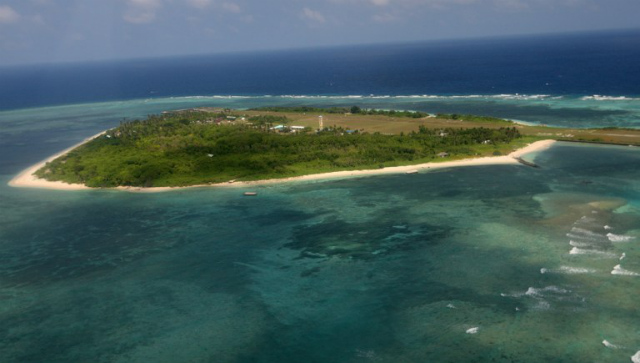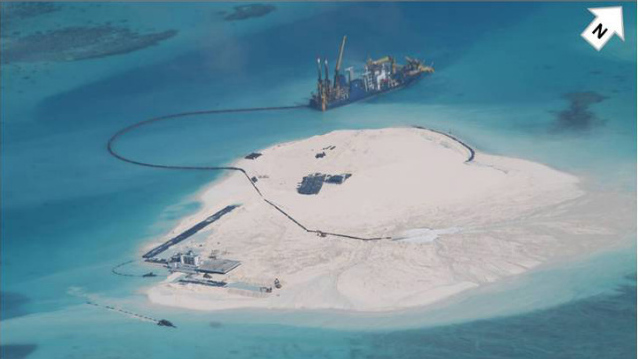SUMMARY
This is AI generated summarization, which may have errors. For context, always refer to the full article.

MANILA, Philippines – While the Philippines sought a “moratorium” on tensions in the disputed South China Sea, China said the Southeast Asian country has defeated its purpose by undertaking “provocative actions” in the disputed waters.
Look who’s planning to build an airport and upgrade their naval facilities, said the Asian giant that is conducting reclamation activities in the South China Sea.
“The Philippine side, on the one hand, intentionally takes provocative actions while, on the other hand, makes irresponsible remarks on China’s legitimate actions which are within China’s sovereignty. That is unjustifiable,” Chinese Foreign Ministry spokesperson Hua Chunying said Monday, June 16.
Hua said this after Philippine Foreign Secretary Albert del Rosario, in a television interview, said the Philippines wants to propose a “moratorium” on “activities that escalate tension.” These include China’s reclamation activities in the disputed waters, parts of which the Philippines claims as the West Philippine Sea.
Philippine Department of Foreign Affairs spokesman Charles Jose explained that the moratorium is “not really a new proposal.” He said it falls under an existing landmark document – the Declaration on the Conduct of Parties in the South China Sea (DOC), which discourages activities that worsen tensions in the South China Sea. (READ: Philippines to press ‘gas pedal’ vs sea tensions’)
For these statements, Hua rebuffed the Philippines in a media briefing in Beijing.

Turning the tables on the Philippines, Hua pointed out that in December 2013, the Philippines’ defense department “announced that they would invest large sums of money to upgrade the airstrips and naval facilities” on Pag-asa Island, known in China as the Zhongye Island.
Then, she said, in January this year, the Philippine military “again announced their plans to build a world-class airport on the so-called Kalayaan Island.”
‘Consensus between ASEAN, China’
“We call on the Philippine side to correct its erroneous actions, strictly follow the Declaration on the Conduct of Parties in the South China Sea, and stop provocations that would further aggravate and complicate the situation,” the Chinese foreign ministry spokesperson said.
China, again, asserted its “indisputable sovereignty” over the Spratly Islands in the South China Sea.
Hua said: “Since the 1970s, the Philippines has illegally and forcefully occupied parts of China’s Nansha (Spratly) Islands including the Zhongye Island, in violation of the UN Charter and principles of international law. We demand the Philippines to withdraw all its facilities and personnel on islands illegally seized from China.”
Despite rising concern among the region’s diplomats over the South China Sea, Hua also suggested that the Association of Southeast Asian Nations has no problem with China’s actions in the disputed waters. (READ: PH weighs proposed ASEAN meet on South China Sea)
She said: “Issues on the sovereignty over islands and reefs of the Nansha Islands are not the ones between China and ASEAN. There is consensus between China and ASEAN on fully and effectively implementing the DOC and negotiating a code of conduct in the South China Sea under that framework. We stand ready to work with relevant countries, strictly follow the DOC and jointly safeguard peace and stability of the South China Sea.”
Taking off from the suggestion of a US diplomat, Del Rosario however is keen on tapping the international community “to step up and to say that we need to manage the tensions in the South China Sea before it gets out of hand.”
China, on the other hand, has rejected third-party involvement in South China Sea disputes, and has insisted on a one-on-one approach with the countries involved. – Rappler.com
Add a comment
How does this make you feel?
There are no comments yet. Add your comment to start the conversation.